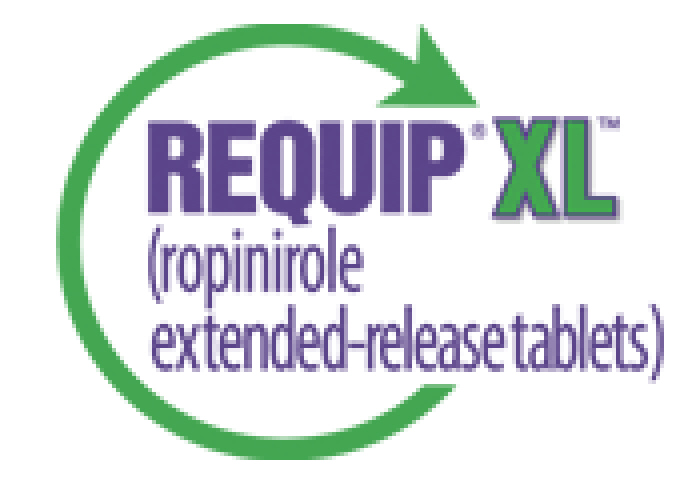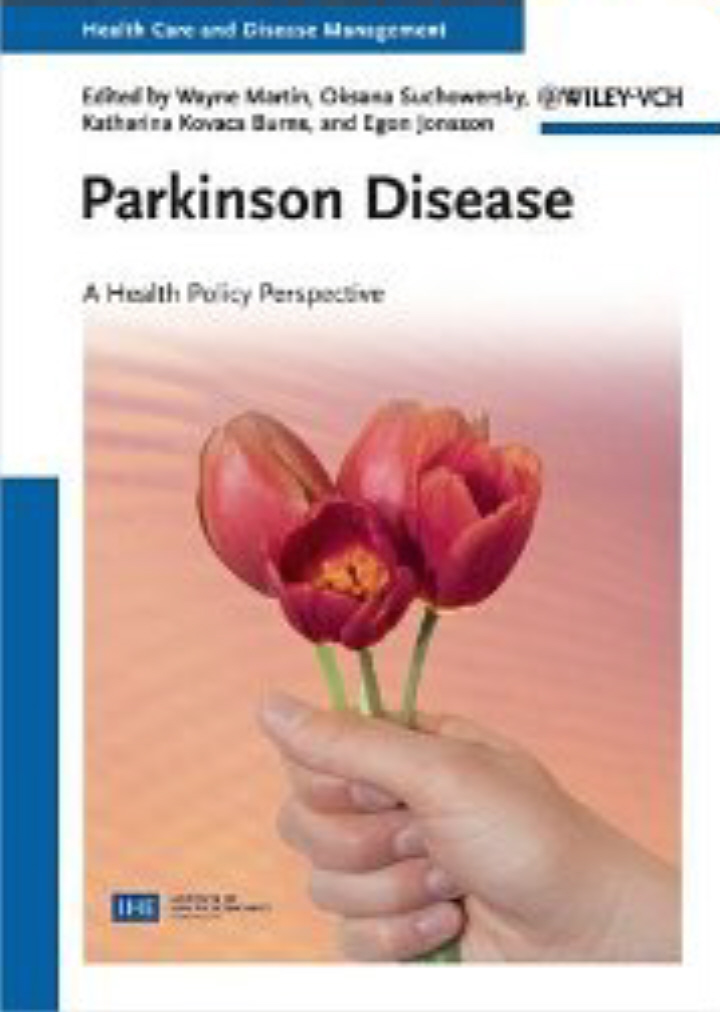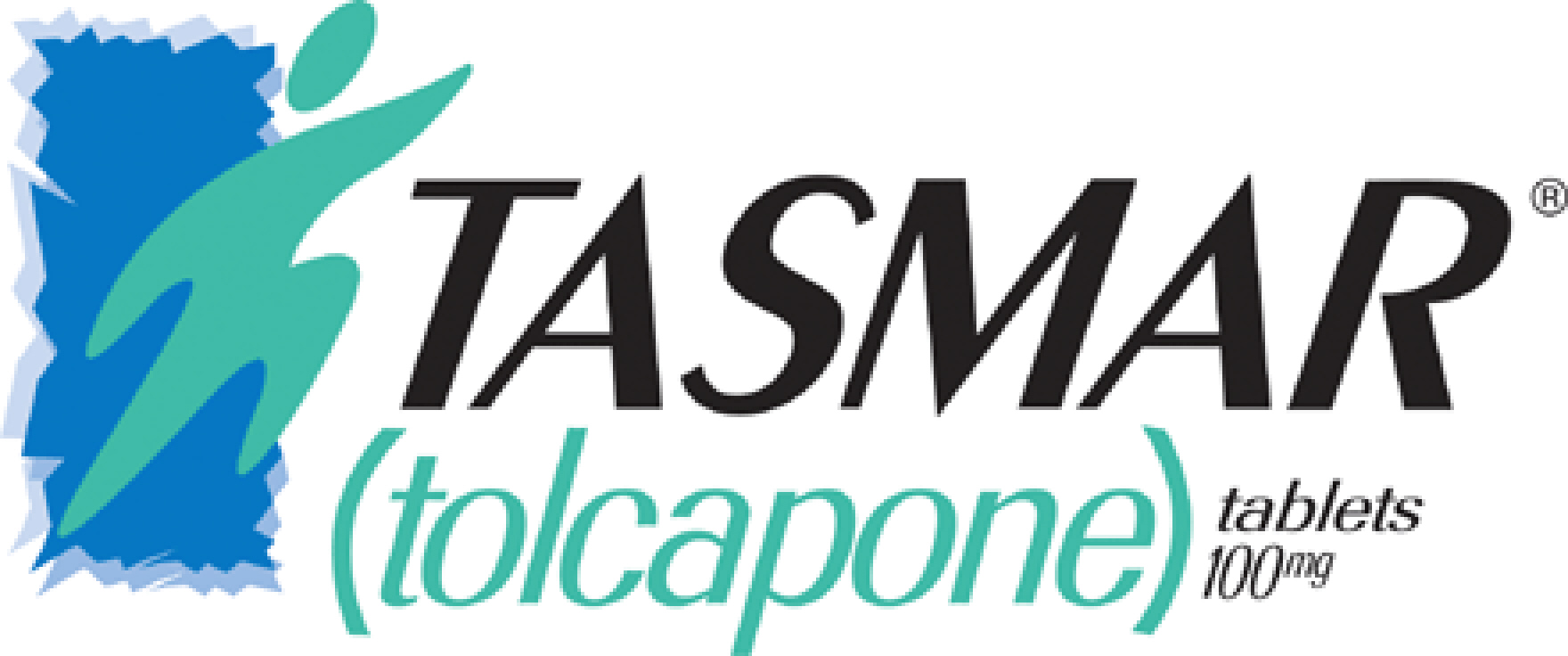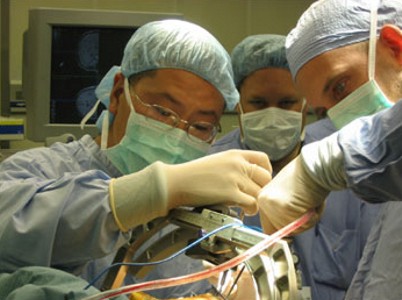28th May 2010 - New research
THE EFFECT OF ANTIOXIDANTS ON
PARKINSON'S DISEASE
European Journal of Neurology [2010] May 18 [Epub
ahead of print]
Complete abstract
Higher intakes of Vitamin E and Vitamin A
(beta-carotene) may be associated with a decreased risk of Parkinson's Disease.
Higher consumption of Vitamin E reduced the risk of Parkinson's Disease to 46%
of what it would otherwise be. Vitamin A (beta-carotene) reduced the risk
of Parkinson's Disease to 56% of what would be expected. However, when assessed
according to gender, these inverse associations were significant only in women.
There does
not
appear to be any explanation for this gender difference.
 Antioxidant
vitamins, such as Vitamin E and Vitamin A are expected to protect cells from
oxidative damage. Vitamin E and Vitamin C (rather than Vitamin A) can assist the
ridding of the superoxide anion. The superoxide anion is a damaging element that tends to be formed in Parkinson's Disease. However, no
relationships were shown to exist between the intake of Vitamin C, or
alpha-carotene, cryptoxanthin, green and yellow vegetables, other vegetables, or
fruit and the risk of Parkinson's Disease.
In order to refer to this
article on its own
click here.
Antioxidant
vitamins, such as Vitamin E and Vitamin A are expected to protect cells from
oxidative damage. Vitamin E and Vitamin C (rather than Vitamin A) can assist the
ridding of the superoxide anion. The superoxide anion is a damaging element that tends to be formed in Parkinson's Disease. However, no
relationships were shown to exist between the intake of Vitamin C, or
alpha-carotene, cryptoxanthin, green and yellow vegetables, other vegetables, or
fruit and the risk of Parkinson's Disease.
In order to refer to this
article on its own
click here.
19th May 2010 - New research
PROLONGED RELEASE ROPINIROLE CLINICAL TRIAL RESULTS
Movement Disorders [2010] 25 (7) : 927-931 (Hersh BP, Earl NL, Hauser RA, Stacy M.)
Complete abstract
Movement Disorders [2010] 25 (7) : 858-866 (Watts RL, Lyons KE, Pahwa R, Sethi K, Stern M, Hauser RA, Olanow
W, Gray AM, Adams B, Earl NL; 228 Study Investigators)
Complete abstract
 Prolonged
Release Ropinirole was found to have a positive effect on Parkinson's
Disease symptoms two weeks after its use begins. Prolonged Release Ropinirole is
a once a day dopamine agonist that is marketed as Requip XL. For more
information go to
Ropinirole. However, the improvements it
caused were minimal. PR Ropinirole improved "off time" but only by 42 minutes
per day. It increased "on time" without dyskinesia, but only by 24 minutes
per day. Improvements were seen in Parkinson's Disease scores, but only
slightly. Even these small improvements are achieved by also causing side
effects.
Prolonged
Release Ropinirole was found to have a positive effect on Parkinson's
Disease symptoms two weeks after its use begins. Prolonged Release Ropinirole is
a once a day dopamine agonist that is marketed as Requip XL. For more
information go to
Ropinirole. However, the improvements it
caused were minimal. PR Ropinirole improved "off time" but only by 42 minutes
per day. It increased "on time" without dyskinesia, but only by 24 minutes
per day. Improvements were seen in Parkinson's Disease scores, but only
slightly. Even these small improvements are achieved by also causing side
effects.
In another study,
Prolonged Release Ropinirole
was found to delay the onset of dyskinesia when added to L-dopa when compared to
increasing the L-dopa dosage. Otherwise there was no difference in Parkinson's
Disease symptom scores. Adverse events were comparable
in the two groups with nausea, dizziness, insomnia, back pain, arthralgia,
somnolence, fatigue, and pain most commonly reported.
In order to refer to this
article on its own
click here.
18th May 2010 - New book
THE CHALLENGE OF A LIFETIME : BACKPACKING WITH
PARKINSON'S
Pete Ferrari
 Publisher's
description : This is an inspirational story (rather than a how-to book) about
several wilderness trips in Algonquin Park in Canada and an 8-day Laurel
Highlands backpacking trip. Pete Ferrari interweaves his Parkinson's Disease
experience and the challenges he faced in coping with strenuous conditions. The
book would be especially inspiring for newly diagnosed patients, as it is a
testimony to challenging oneself to overcome obstacles and lead an active life.
Diagnosed at a young age, he faced the mental battle with the disease, which he
describes perfectly, and explains and demonstrates how he identified the enemy
and approaches the battle.
Click here for more details.
For
more books concerning Parkinson's Disease go to
Parkinson's Disease Books.
Publisher's
description : This is an inspirational story (rather than a how-to book) about
several wilderness trips in Algonquin Park in Canada and an 8-day Laurel
Highlands backpacking trip. Pete Ferrari interweaves his Parkinson's Disease
experience and the challenges he faced in coping with strenuous conditions. The
book would be especially inspiring for newly diagnosed patients, as it is a
testimony to challenging oneself to overcome obstacles and lead an active life.
Diagnosed at a young age, he faced the mental battle with the disease, which he
describes perfectly, and explains and demonstrates how he identified the enemy
and approaches the battle.
Click here for more details.
For
more books concerning Parkinson's Disease go to
Parkinson's Disease Books.
13th May 2010 - New book
PARKINSON'S DISEASE : A HEALTH POLICY
PERSPECTIVE
Wayne Martin, Oksana Suchowersky, Katharina Kovacs
Burns, Egon Jonsson
 Publisher's
description : Part of the successful Institute of Health Economics (IHE) book
series, this handbook and ready reference adopts a unique approach in combining
policy recommendations with specific treatment options for Parkinson patients.
The first part of the book deals with the clinical medical, social and
economical aspects of Parkinson Disease. These ten chapters include the latest
diagnosis and treatment options for patients, the economical consequences,
social and ethical implications and end-of life issues. The second part of the
book essentially covers a large-scale case study on Parkinson in Alberta,
Canada, since most of the issues discussed are relevant in all developed
countries. With its strong focus on correct diagnosis and early intervention,
this is an invaluable guide for clinicians and policymakers dealing with this
devastating disease.
Click here for more details.
For
more books concerning Parkinson's Disease go to
Parkinson's Disease Books.
Publisher's
description : Part of the successful Institute of Health Economics (IHE) book
series, this handbook and ready reference adopts a unique approach in combining
policy recommendations with specific treatment options for Parkinson patients.
The first part of the book deals with the clinical medical, social and
economical aspects of Parkinson Disease. These ten chapters include the latest
diagnosis and treatment options for patients, the economical consequences,
social and ethical implications and end-of life issues. The second part of the
book essentially covers a large-scale case study on Parkinson in Alberta,
Canada, since most of the issues discussed are relevant in all developed
countries. With its strong focus on correct diagnosis and early intervention,
this is an invaluable guide for clinicians and policymakers dealing with this
devastating disease.
Click here for more details.
For
more books concerning Parkinson's Disease go to
Parkinson's Disease Books.
9th May 2010 - New research
TOLCAPONE CLINICAL TRIAL RESULTS
CNS Spectrums [2010] 15 (1) : 27-32 (K.Sethi,
S.Factor, R.Watts)
Complete abstract
Changes in the quality of life (QOL) were assessed
in people with Parkinson's Disease after thirty days of the use of Tolcapone
being added to their existing treatments. Tolcapone, whose brand name is Tasmar,
is a COMT inhibitor, which is drug that helps to maintain the levels of
dopamine, the substance whose deficiency causes Parkinson's Disease. For more
information go to
Tolcapone.
After thirty days of Tolcapone use the mean PDQ-8 total score (which assesses basic Parkinson's Disease symptoms) improved from 42.1 to 34.8.
Nearly 70% of the patients also improved on the CGI-I (the investigator's impression
of improvement). Physicians planned to continue the use of
 Tolcapone beyond the
thirty days in 72% of cases, most commonly because of the improvements in motor
function and overall general improvement. However, the side effects it caused
were not detailed.
Tolcapone is the same kind
of drug as Entacapone, which is more commonly used. Entacapone is sold on its own as Comtan, or in combination
with Sinemet as Stalevo. In order to refer to this
article on its own
click here.
Tolcapone beyond the
thirty days in 72% of cases, most commonly because of the improvements in motor
function and overall general improvement. However, the side effects it caused
were not detailed.
Tolcapone is the same kind
of drug as Entacapone, which is more commonly used. Entacapone is sold on its own as Comtan, or in combination
with Sinemet as Stalevo. In order to refer to this
article on its own
click here.
5th May 2010 - New research
THE EFFICACY OF DEEP BRAIN
STIMULATION
Lancet Neurology [2010] Apr 28. [Epub ahead of
print] (A.Williams, S.Gill, T.Varma, C.Jenkinson, N.Quinn, R.Mitchell, R.Scott,
N.Ives, C.Rick, J.Daniels, S.Patel, K.Wheatley)
Complete abstract
Researchers assessed whether Deep Brain Stimulation (DBS) and best medical
therapy improved the quality of life more than the best medical therapy alone in
people with advanced Parkinson's Disease. Deep
Brain Stimulation (DBS) involves the use of electrodes that are implanted
into the brain and connected to a small electrical device called a pulse generator that can
be externally programmed. For more information go to
Deep brain stimulation.
 Best medical therapy usually means only the use of Parkinson's Disease drugs
instead. After a year, there was improvement
in those people that had also undergone Deep Brain Stimulation, but there was no
improvement in people taking only Parkinson's Disease drugs. Those people who
had also undergone DBS fared better regarding mobility, in the activities of
daily living, and feelings of bodily discomfort. DBS made no difference in any
other respect. Nearly 20% of of those patients who underwent DBS had
serious surgery-related adverse events.
In order to refer to this
article on its own
click here.
Best medical therapy usually means only the use of Parkinson's Disease drugs
instead. After a year, there was improvement
in those people that had also undergone Deep Brain Stimulation, but there was no
improvement in people taking only Parkinson's Disease drugs. Those people who
had also undergone DBS fared better regarding mobility, in the activities of
daily living, and feelings of bodily discomfort. DBS made no difference in any
other respect. Nearly 20% of of those patients who underwent DBS had
serious surgery-related adverse events.
In order to refer to this
article on its own
click here.
.gif)
.gif)
 Antioxidant
vitamins, such as Vitamin E and Vitamin A are expected to protect cells from
oxidative damage. Vitamin E and Vitamin C (rather than Vitamin A) can assist the
ridding of the superoxide anion. The superoxide anion is a damaging element that tends to be formed in Parkinson's Disease. However, no
relationships were shown to exist between the intake of Vitamin C, or
alpha-carotene, cryptoxanthin, green and yellow vegetables, other vegetables, or
fruit and the risk of Parkinson's Disease.
In order to refer to this
article on its own
Antioxidant
vitamins, such as Vitamin E and Vitamin A are expected to protect cells from
oxidative damage. Vitamin E and Vitamin C (rather than Vitamin A) can assist the
ridding of the superoxide anion. The superoxide anion is a damaging element that tends to be formed in Parkinson's Disease. However, no
relationships were shown to exist between the intake of Vitamin C, or
alpha-carotene, cryptoxanthin, green and yellow vegetables, other vegetables, or
fruit and the risk of Parkinson's Disease.
In order to refer to this
article on its own

 Publisher's
description : This is an inspirational story (rather than a how-to book) about
several wilderness trips in Algonquin Park in Canada and an 8-day Laurel
Highlands backpacking trip. Pete Ferrari interweaves his Parkinson's Disease
experience and the challenges he faced in coping with strenuous conditions. The
book would be especially inspiring for newly diagnosed patients, as it is a
testimony to challenging oneself to overcome obstacles and lead an active life.
Diagnosed at a young age, he faced the mental battle with the disease, which he
describes perfectly, and explains and demonstrates how he identified the enemy
and approaches the battle.
Publisher's
description : This is an inspirational story (rather than a how-to book) about
several wilderness trips in Algonquin Park in Canada and an 8-day Laurel
Highlands backpacking trip. Pete Ferrari interweaves his Parkinson's Disease
experience and the challenges he faced in coping with strenuous conditions. The
book would be especially inspiring for newly diagnosed patients, as it is a
testimony to challenging oneself to overcome obstacles and lead an active life.
Diagnosed at a young age, he faced the mental battle with the disease, which he
describes perfectly, and explains and demonstrates how he identified the enemy
and approaches the battle.
 Publisher's
description : Part of the successful Institute of Health Economics (IHE) book
series, this handbook and ready reference adopts a unique approach in combining
policy recommendations with specific treatment options for Parkinson patients.
The first part of the book deals with the clinical medical, social and
economical aspects of Parkinson Disease. These ten chapters include the latest
diagnosis and treatment options for patients, the economical consequences,
social and ethical implications and end-of life issues. The second part of the
book essentially covers a large-scale case study on Parkinson in Alberta,
Canada, since most of the issues discussed are relevant in all developed
countries. With its strong focus on correct diagnosis and early intervention,
this is an invaluable guide for clinicians and policymakers dealing with this
devastating disease.
Publisher's
description : Part of the successful Institute of Health Economics (IHE) book
series, this handbook and ready reference adopts a unique approach in combining
policy recommendations with specific treatment options for Parkinson patients.
The first part of the book deals with the clinical medical, social and
economical aspects of Parkinson Disease. These ten chapters include the latest
diagnosis and treatment options for patients, the economical consequences,
social and ethical implications and end-of life issues. The second part of the
book essentially covers a large-scale case study on Parkinson in Alberta,
Canada, since most of the issues discussed are relevant in all developed
countries. With its strong focus on correct diagnosis and early intervention,
this is an invaluable guide for clinicians and policymakers dealing with this
devastating disease.

 Best medical therapy usually means only the use of Parkinson's Disease drugs
instead. After a year, there was improvement
in those people that had also undergone Deep Brain Stimulation, but there was no
improvement in people taking only Parkinson's Disease drugs. Those people who
had also undergone DBS fared better regarding mobility, in the activities of
daily living, and feelings of bodily discomfort. DBS made no difference in any
other respect. Nearly 20% of of those patients who underwent DBS had
serious surgery-related adverse events.
In order to refer to this
article on its own
Best medical therapy usually means only the use of Parkinson's Disease drugs
instead. After a year, there was improvement
in those people that had also undergone Deep Brain Stimulation, but there was no
improvement in people taking only Parkinson's Disease drugs. Those people who
had also undergone DBS fared better regarding mobility, in the activities of
daily living, and feelings of bodily discomfort. DBS made no difference in any
other respect. Nearly 20% of of those patients who underwent DBS had
serious surgery-related adverse events.
In order to refer to this
article on its own